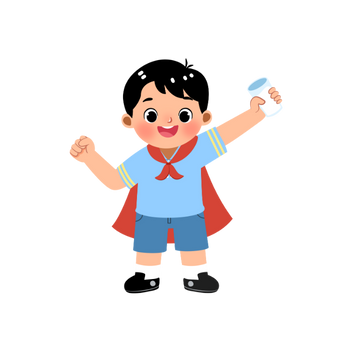In your child’s journey towards adulthood, your parenting style will play a crucial role in their holistic child development. This parenting style will include how you relate to your child, through daily interaction, guidance, and even your chosen method of discipline.

Regardless of what parenting style you choose, what’s important is to recognize the value in how it can profoundly impact child development in all aspects.
Each child is unique. And they are growing into individuals with distinct needs and interests each day. Because they are evolving into their own selves, they are, in a sense, writing their own stories. And a large part of this narrative depends on a variety of factors that are anchored upon their earliest relationships, particularly with their parents or parental figures.
It was in the 1960s when developmental psychologist Diana Baumrind first identified the connection between parenting style and behaviour types. But in the decades since, several similar studies have claimed that this is merely a correlation and not the be-all and end-all to determine the kind of person a child will become.
Based on these extensive studies, here are a few examples of how parenting styles can influence child development.
Authoritarian Tiger – Follow Rules Without Question
One of the most well-known parenting styles is called authoritarian, also known as ‘Authoritarian Tiger’. For authoritarian parents, strict rules must be set in place and are to be followed at all times.
‘Authoritarian Tiger’ parents are often inclined to reduce their children’s involvement in problem-solving, especially since they have already provided a set of rules for children to follow as a more effective guide.
Studies have revealed that children who grow up under ‘Authoritarian Tiger’ parents could develop self-esteem issues that stem from the belief that their opinions hardly matter. However, it is important to note that this parenting style could be effective for children who require calculated guidance through strict and regimented upbringing.
Authoritative Dolphin – Learn and Improve with Each Passing Experience
Another commonly known parenting style is called authoritative, dubbed ‘Authoritative Dolphin’ in the world of parenting for child development. Similar to the body of a dolphin, these parents are firm yet flexible in nature. And while they do set certain rules and consequences for their children, they also allow them to express their personal opinions on selected subject matters.
And while parents in this category are still somewhat authoritative, they do inspire understanding and learning through discussion, reasoning and role-modeling. In addition, ‘Authoritative Dolphin’ parents also invest a large part of their time and energy on nipping the bud of potential behavioural problems. This includes positive disciplinary techniques such as praise and point rewards systems.
In turn, children who grow up under ‘Authoritative Dolphin’ parents tend to become responsible adults who are not only comfortable with expressing an opinion, but also good at decision-making and evaluating risks on their own.
Permissive Kangaroo – Follow These Rules, But You’re Free To Explore
Another popular parenting style is called permissive parenting, which is also known as ‘Permissive Kangaroo’. On the surface, ‘Permissive Kangaroo’ parents appear quite lenient, and will only step in if a serious problem arises. And even though these parents do provide their children with a set of rules to follow, they could lapse in monitoring their children’s behaviour closely or set firm limits.
Mothers and fathers in this particular category also tend to forgive easily, and often adopt an attitude of “let kids be kids”. When they do reprimand their children, they may use punishments, but even these punishments can often be inconsistent and flexible.
Children of ‘Permissive Kangaroo’ parents are encouraged to express their feelings. But in some cases, parents’ need to raise kids freely results in insufficient guidance. As a result, children could grow up to be impulsive or domineering.
But it is worth noting that, as with the child development parenting styles mentioned, there are children who could benefit from this method of child-rearing. In particular, children who need freedom to learn and make mistakes without fear of punishment.
Negligent Panda – Love and Nurturing Above All Else
The term “Negligent Panda” is used to describe parents who provide a nurturing and sheltered upbringing. This type of parenting style is associated with granting a child flexibility and choices, as compared to adhering to strict guidelines.
In some cases, although a child is allowed to have more freedom, there have been healthy holistic outcomes. This is exemplified through the Montessori Method of Learning, which practices self-directed activity, hands-on-learning, and creative play to invigorate critical thinking.
This parenting style has certain drawbacks, as some children could also be overwhelmed with choice and be unable to problem-solve efficiently. But it is believed that a child who is allowed to have choices could potentially develop better self-esteem and self-direction than one who is frequently scolded and criticized.
Being the Best Parents You Can Be, Regardless of Parenting Style
Your parenting style may fall under one or more of the aforementioned categories, but what matters is focusing on the holistic growth of your child. Raising a child who is self-confident, independent and adept at making decisions begins with a good foundation. And as with anything in life that is built and strengthened over time, child development requires patience and understanding, for both your child and yourself as a parent.
The holistic growth of children who are self-confident, independent and apt at making decisions begins with a good foundation. For example, parents should encourage children to share about potentially difficult challenges that they may be facing at school, and how they plan to solve it. At the same time, parents should get into the habit of sharing their personal experiences in facing similar challenges, and how they managed to rise above them.
Know that you and your child are in this together. Let your child express themselves and try their hand at problem solving. Share your own personal experiences and wisdom to help guide and support them. What is vital during their formative years is constant reassurance that you will be there for them no matter what challenges the years will bring.
Build a good psychological foundation for child development by emphasising that making mistakes is actually good, as this provides an opportunity to grow and learn. Encourage mental growth by cultivating their interests and applying them into hobbies, which can also become good bonding experiences.
But most importantly, learning to trust the process of growth is a good lesson all parents, regardless of parenting style, can impart to their child.
Hello Health Group does not provide medical advice, diagnosis or treatment.
[embed-health-tool-bmi]



















